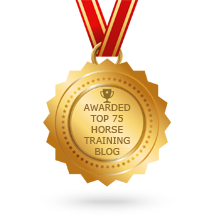5 Comments
18/11/2018 05:05:17 pm
Love this! Nailed it, Bex- agree 100%. You’ve certainly helped my clarity; and never ever condescending ❤️
Reply
19/11/2018 05:53:18 am
Love this. Just sound thinking from a little boy problem-solver.
Reply
Lyndsey Lewis
19/11/2018 07:19:57 am
LOVE THIS!! Especially this piece...."Often I have students attend my clinics who are naturally gifted trainers and have been training horses, sometimes to quite high levels, for decades. It is not my role to teach them “how to train better”..."
Reply
Belinda Rodriguez
19/11/2018 07:34:23 am
We all need some of that preschool thinking in us. I think as we get older we get too focused on what others think, and the responsibility of keeping everything under control can cloud our judgement.
Reply
Abigail Morris
19/11/2018 08:27:01 pm
Excellent insight - even if you have the best ‘feel’ in the world if you don’t know why it works and can’t explain your skill dies wiith you.
Reply
Your comment will be posted after it is approved.
Leave a Reply. |
Subscribe now!Stay in the loop - blog posts, latest news and educational opportunities! Thank you!You have successfully joined our subscriber list. AuthorBex Tasker Archives
March 2020
Categories
All
|


 RSS Feed
RSS Feed